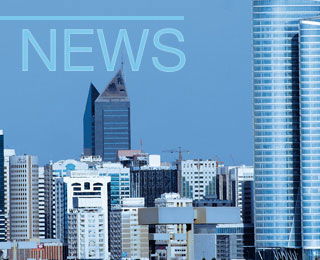The Siam Cement Group (SCG), Thailand’s largest industrial conglomerate, will review its investment plans in light of high market volatility and the slowing global economy. SCG has already delayed a new chemical complex in Vietnam due in part to market volatility.
’’We are still not sure how deep the impact of the US crisis will be. While we are feeling little impact now, it will be better if we prepare for the unexpected,’’ said Roongrote Rangsiyopash, the group’s chief financial officer. ’’If we have to make a choice, long-term security is the priority, not growth figures.’’
On hold is a US$3.5bn petrochemical complex in Vietnam, for which SCG agreed in principle on a joint venture with the PetroVietnam early this year. SCG and its partner agreed to delay the start of construction to the second quarter 2009 from mid-2008 as scheduled earlier.
’’We told [PetroVietnam] that we still want to move forward with the project but with more caution, and they promptly agreed,’’ he said.
For now, the CFO may approve only investments that could save energy costs or generate profits quickly, or those needing just a few years to complete.
However, for the ongoing projects, the company is moving forward without delay. During the past four years, SCG has had a total of 90 billion baht worth of ongoing projects, with investments totalling 50 billion baht scheduled to start commercially soon. Ventures worth another 40 billion baht are due to come online gradually through early 2010.
’’For these ongoing ventures, sources of funds are all fixed through contracts, particularly bank loans’’ Mr Roongrote said. In terms of equity, he said there was no concern as SCG generated about 40 billion baht a year in cash.
The group is investing in only its core cement and building materials, petrochemical and paper and packaging businesses, both at home and abroad.
Even though only a small part of SCG’s export income comes from the United States, the group foresees a worst case in which the US financial slowdown may trigger a world economic crisis. As a result, new markets, such as the Middle East and Africa, are seen as essential as they are less affected by US economic troubles.
’’The world’s key economic market is shifting to emerging markets, where demand is still strong and development of new products is just getting under way,’’ he said.
For the first half of the year, SCG’s sales rose 23% YoY to 158.86 billion baht, but earnings fell 16% to 14.31 billion. Almost half of the group’s income came from the chemical business, 30% from cement, with paper and building products each contributing 10%.
Export revenues for the four core businesses range from 30% to 45% of total sales, with Asia representing 60% of total export sales, except for chemicals that are shipped to more than 40 countries. Only 10-15% of sales come from new export markets.
SCG plans to issue bonds worth 20 billion baht in October, half of which will go to refinance debt and for working capital. Consequently its bond debt with grow to 105 billion baht, out of net debt of 120 billion baht in total.
Siam Cement (SCC) shares closed yesterday on the Stock Exchange of Thailand at 134 baht, down three baht, in trade worth 147.77 million baht.
